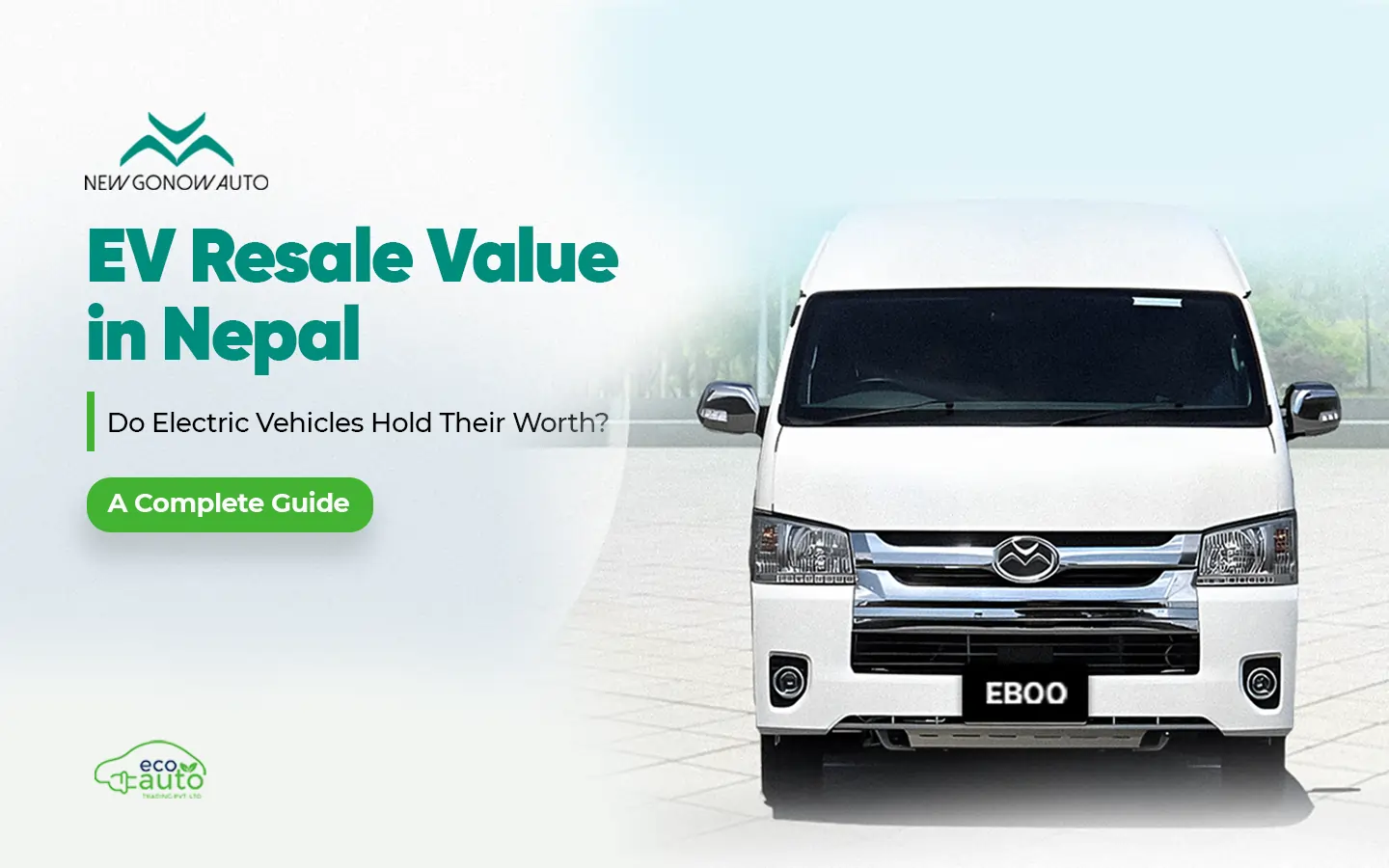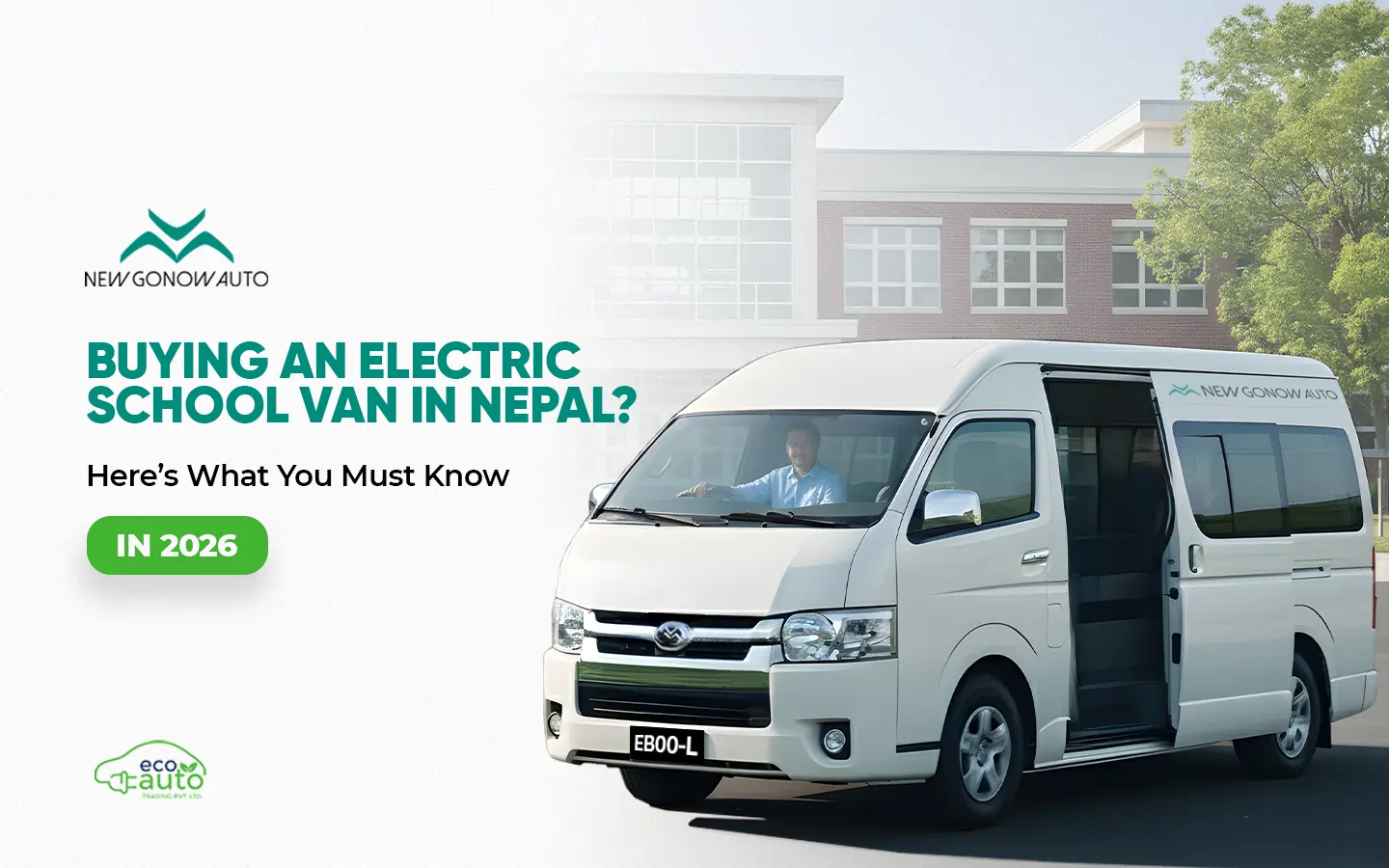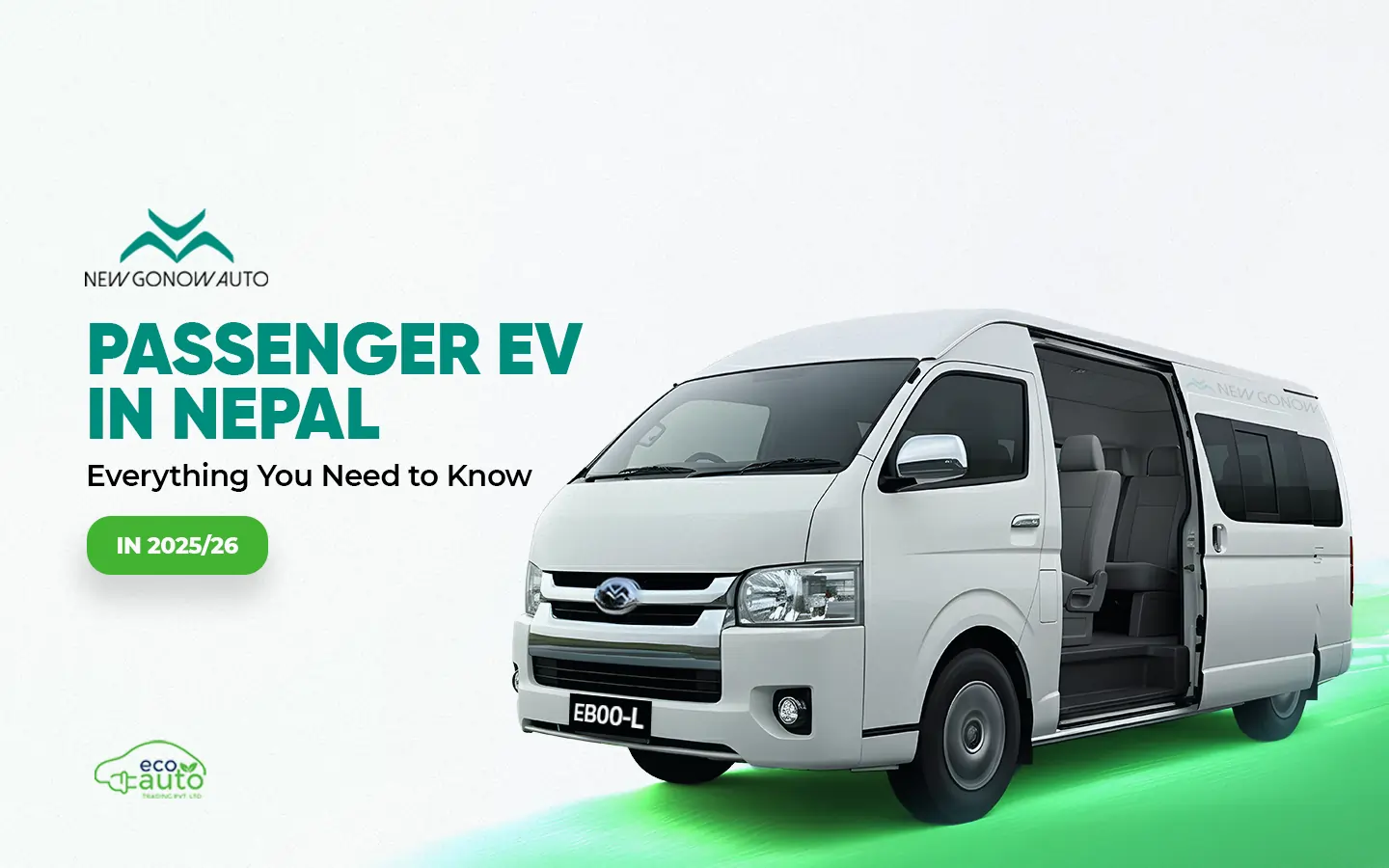
EV Resale Value in Nepal 2025: Do Electric Vehicles Really Hold Their Worth?
Electric vehicles (EVs) are rapidly gaining popularity in Nepal, driven by environmental awareness, government incentives, and expanding charging infrastructure. However, potential buyers and sellers often wonder:
Do EVs retain their value over time?
At Eco Auto Nepal, we closely monitor these trends to guide buyers and sellers in making smarter EV decisions.
In this blog, we delve into the factors influencing EV resale value in Nepal, supported by the latest data and real-world examples, to help you make informed decisions.
1. Depreciation in the First Few Years
EVs typically experience faster depreciation compared to traditional internal combustion engine (ICE) vehicles. In Nepal, second-hand EVs are often priced 30–40% lower than new models within the first couple of years. (reference)
Recent Example:
| Model | New Price (2023) | Used Price (2025, 2 years old) | Depreciation |
| BYD e6 | NPR 5,750,000 | NPR 3,800,000 | 34% |
This example illustrates a depreciation of about 34% in just two years.
Key Reasons for Depreciation:
- Battery Concerns: Buyers are cautious about the remaining lifespan of EV batteries.
- Technological Advancements: Older models may feel outdated as new EV technologies emerge.
- Market Saturation: The influx of new EV models can reduce demand for used ones.
2. Government Policies and Incentives
The Nepalese government is actively promoting EV adoption through various incentives:
- Import Tax Reductions: Import duties on electric vehicles have been significantly reduced compared to petrol and diesel vehicles. (source)
- Tax Exemptions: Lower customs and excise duties have been implemented for EVs.
- Bank Financing: Auto loans can cover up to 80% of the purchase price of an EV.
These policies have led to a surge in EV sales, with EVs now accounting for over 70% of new passenger vehicle sales in Nepal.
3. The Growing Second-Hand EV Market
Despite initial depreciation, the used EV market in Nepal is expanding:
- Increased Availability: While platforms like Gaubazar and MeroAuto list pre-owned EVs, many Nepali buyers still prefer purchasing new, warranty-backed vehicles from trusted dealers such as Eco Auto Nepal.
- Improved Charging Infrastructure: Over 400 charging stations have been established across Nepal, making EVs practical for daily use.
- Government Support: Ongoing incentives continue to make EVs attractive in the resale market.
4. Key Factors Influencing EV Resale Value
Several factors can impact the resale value of EVs in Nepal:
- Brand & Model: Reputable brands tend to retain value better.
- Battery Health: A well-maintained battery can significantly enhance resale value.
- Mileage & Maintenance: Lower mileage and documented maintenance increase buyer confidence.
- Market Demand: Growing EV adoption is expected to stabilize resale prices.
5. Tips for Buyers and Sellers
For Buyers:
- Research: Investigate the EV model’s specifications and battery life.
- Battery Check: Ensure the battery’s remaining lifespan is adequate.
- Price Comparison: Compare prices across platforms and dealerships.
For Sellers:
- Maintenance Records: Keep detailed service and maintenance records.
- Optimal Timing: Consider selling during high-demand periods to maximize resale price.
- Highlight Battery Health: Emphasize the condition and warranty status of the battery.
6. Conclusion
While EV resale value in Nepal may experience faster depreciation in the initial years, government incentives, expanding charging infrastructure, and rising demand for sustainable transportation are gradually stabilizing the market. Understanding these factors can help buyers and sellers make informed decisions.
If you’re thinking about investing in an EV, start with the right dealership. At Eco Auto Nepal, we offer trusted models, expert guidance, and after-sales support
Frequently Asked Questions (FAQs)
1. What happens to an EV after 5 years?
Most electric vehicles lose about 50–60% of their value after five years, depending on the model, brand reputation, and market demand. Popular models tend to retain value better.
2. Which EVs depreciate the fastest?
Models such as the Jaguar I-PACE, BMW i3, and Porsche Taycan tend to depreciate faster because of high initial prices, limited market demand, and rapid technology updates.
3. Why do EVs depreciate faster than petrol cars?
Factors include rapid technological advancements, government incentives, concerns about battery life, and fluctuating market demand, which can make older EVs less desirable.
4. How can I maximize my EV’s resale value?
Maintain service records, care for the battery, choose popular models, and track market trends. A well-maintained EV with a valid battery warranty sells faster and at a higher price.
5. Does a battery warranty affect resale value?
Yes. EVs with remaining battery warranty are more attractive to buyers, as it reduces the risk of costly replacements. An expired warranty can lower resale value.




